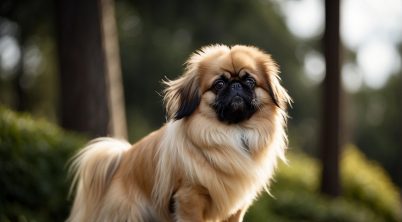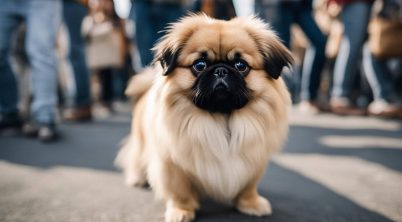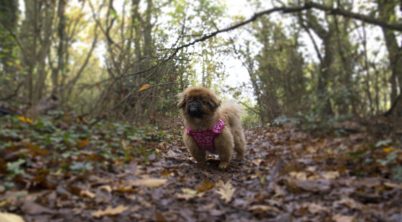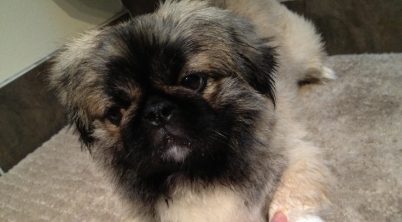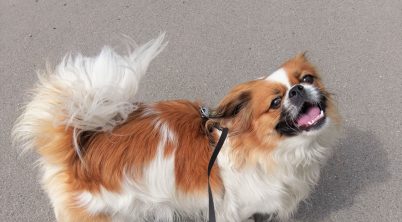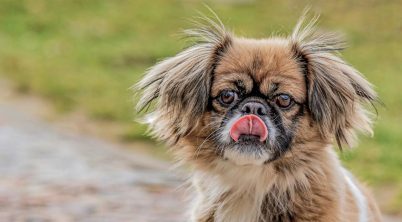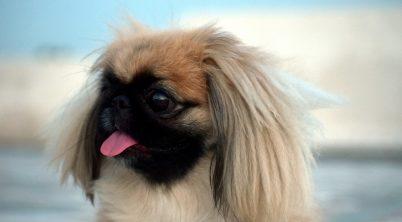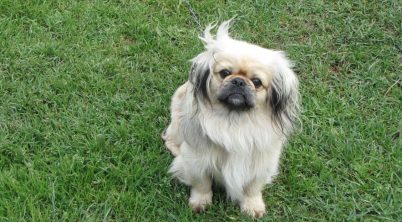Pekingese Nutrition
Understanding the nutritional requirements of Pekingese is essential for their well-being. This breed has unique needs due to their size, history, and potential health concerns.
Essential Diet Components
For a Pekingese, a well-balanced diet includes a range of high-quality protein, healthy fats, carbohydrates, vitamins, and minerals.
- Proteins: Essential for maintaining muscle health, proteins should come from sources like meat, fish, and eggs.
- Fats: Provide energy and support coat health. Sources include fish oil and flaxseed.
- Carbohydrates: Should come from digestible sources like rice and potatoes to provide energy without overloading their digestive system.
- Vitamins and Minerals: Important for overall health, these can be found in a variety of vegetables and commercial dog foods formulated for small breeds.
Dietary Considerations and Health
Pekingese are prone to weight gain, which can lead to obesity and related health issues like joint and respiratory problems, typical of brachycephalic breeds. They may also suffer from dental and digestive issues due to their small size and unique facial structure.
- Digestive Health: Small, frequent meals can prevent overloading the digestive system.
- Health Conditions: A diet rich in omega fatty acids can help maintain healthy joints and a lustrous coat.
Feeding Guidelines
Puppies and adult dogs have different caloric and nutritional needs. Daily exercise and portion control are important for preventing obesity.
- Puppies: Require a diet higher in calories and nutrients for growth, divided into three meals per day.
- Adults: Typically need about 0.5 to 0.75 cups of food per day, depending on their size and energy levels, divided into two meals to maintain their digestive health.
- Meal Type: Both wet food and dry food can be appropriate if they meet the nutritional needs. Grain-free options can be beneficial, especially if there are allergies or sensitivities.
In summary, a nutritious diet tailored to their specific needs is foundational in ensuring the health and happiness of a Pekingese, considering their backgrounds ranging from royal palaces in ancient China to modern-day companions worldwide.
Pekingese Care and Management
Caring for a Pekingese requires an understanding of their unique characteristics and needs. Originating from ancient China, these small dogs were once companions to Chinese royalty and even have a history intertwined with Buddhism, being likened to lion dogs. With their bold and confident nature, Pekingeses are both loyal and affectionate family dogs that exude dignity.
Nutrition
Feeding: A balanced diet is vital to prevent obesity, a common health issue in Pekingeses. Measure their food and maintain a consistent feeding schedule.
Grooming
Coat Care: Their double coats require regular grooming to prevent matting. Monthly baths and weekly brushing help manage shedding and reduce itching.
Exercise
Physical Activity: Despite their rolling gait, Pekingeses need daily exercise to maintain their weight and joint health. Aim for moderate activities such as short walks or gentle indoor play to accommodate their physique and prevent overheating in hot weather.
Health Management
Regular Check-ups: Be proactive with dental and Pekingese respiratory health by scheduling regular veterinary visits. Early detection is key to managing breed-specific health conditions.
Behavior and Training
Training: These intelligent, yet opinionated dogs respond well to positive reinforcement techniques. Training should start early to socialize them properly.
Temperament
Personality: Pekingeses are naturally courageous, confident, and can make excellent watchdogs. They thrive in a loving environment where they can be part of the family’s daily life.
By adhering to these care guidelines, owning a Pekingese can be a truly rewarding experience.
* Banner picture by Eli Christman, cropped | Some rights reserved CC BY 2.0 DEED

